- News
- Reviews
- Bikes
- Accessories
- Accessories - misc
- Computer mounts
- Bags
- Bar ends
- Bike bags & cases
- Bottle cages
- Bottles
- Cameras
- Car racks
- Child seats
- Computers
- Glasses
- GPS units
- Helmets
- Lights - front
- Lights - rear
- Lights - sets
- Locks
- Mirrors
- Mudguards
- Racks
- Pumps & CO2 inflators
- Puncture kits
- Reflectives
- Smart watches
- Stands and racks
- Trailers
- Clothing
- Components
- Bar tape & grips
- Bottom brackets
- Brake & gear cables
- Brake & STI levers
- Brake pads & spares
- Brakes
- Cassettes & freewheels
- Chains
- Chainsets & chainrings
- Derailleurs - front
- Derailleurs - rear
- Forks
- Gear levers & shifters
- Groupsets
- Handlebars & extensions
- Headsets
- Hubs
- Inner tubes
- Pedals
- Quick releases & skewers
- Saddles
- Seatposts
- Stems
- Wheels
- Tyres
- Health, fitness and nutrition
- Tools and workshop
- Miscellaneous
- Cross country mountain bikes
- Tubeless valves
- Buyers Guides
- Features
- Forum
- Recommends
- Podcast
review
£3,000.00
VERDICT:
High-end frameset that's light and offers an excellent ride quality, 100 per cent made in the USA
Weight:
1,200g
Contact:
At road.cc every product is thoroughly tested for as long as it takes to get a proper insight into how well it works. Our reviewers are experienced cyclists that we trust to be objective. While we strive to ensure that opinions expressed are backed up by facts, reviews are by their nature an informed opinion, not a definitive verdict. We don't intentionally try to break anything (except locks) but we do try to look for weak points in any design. The overall score is not just an average of the other scores: it reflects both a product's function and value – with value determined by how a product compares with items of similar spec, quality, and price.
What the road.cc scores meanGood scores are more common than bad, because fortunately good products are more common than bad.
- Exceptional
- Excellent
- Very Good
- Good
- Quite good
- Average
- Not so good
- Poor
- Bad
- Appalling
The Allied Alfa is a lightweight carbon fibre race bike that offers an excellent ride quality and, unusually, it's made start to finish in-house in the US. It's available as a frameset or the UK distributor, The Bicycle Chain, can build it up for you, either completely custom or as a standard build.
- Pros: Great ride quality, low weight, custom builds available
- Cons: High-end always means it'll cost ya
The Alfa balances its light weight with a high level of stiffness, particularly through the centre of the frame, and it feels great throughout the longest rides. The overall offering is hugely impressive.
Jump aboard and this is clearly a bike that's built for speed, putting you into an efficient flat-backed riding position (more on the geometry later). Although Allied hasn't sought to shave off the grams at all costs, this is a light bike with a claimed frame weight of 875g and a fork weight of 325g. You can certainly find lighter out there, but built up for us by the UK distributor, our complete bike (minus pedals) came in at just 6.89kg (15lb 7oz). I'm not one of those people who gets obsessed by bike weight, but this is a bike that feels very light in use.
One other thing you notice straightaway is the level of frame stiffness on offer, particularly through the middle of the bike. Get out of the saddle and sprint hard and the bottom bracket area doesn't budge – not so much that I could detect, anyway, even when giving it full beans.
Unlike most manufacturers of performance-orientated bikes, Allied has gone for an external threaded bottom bracket (BSA standard) rather than any of the press-fit options that are out there, with the aim of avoiding any issues with creaking further down the line and keeping serviceability simple. It doesn't seem to have had a detrimental effect on rigidity down there.
I liked the cornering characteristics too, the tapered head tube – like many others, it houses a 1 1/8in upper bearing and a 1 1/4in lower bearing – and Allied's own fork keeping things in order up front. This is a bike that allows you to have some fun pushing hard into the turns, shifting your weight around with the minimum of braking. If you need to change your line, the steering is quick and responsive.
All the while, the Alfa kept me feeling pretty comfortable. Of course, a lot of that is going to come down to the components you choose. Our review bike was built up with Zipp 202 wheels fitted with 25mm Pirelli P Zero Velo tyres, a Fizik Cyrano R3 handlebar and stem, Cyrano R1 seatpost (27.2mm diameter) and Antares saddle.
I didn't feel much in the way of road buzz coming through that lot. Quite the opposite. I mean, we're not talking about the level of smoothness you get with some endurance models, but this is a race bike. You can be out on the Alfa for hours without feeling like you've got into a scrap with the heavyweight champion of the world, or even the flyweight champ. If you wanted to put more air between you and the road, there's enough clearance for 28mm tyres (or 30mm if you went for the disc brake version of this frameset).
Geometry and sizing
Another thing that has a huge effect on comfort is, of course, the geometry and the Alfa is interesting in that it is available in six sizes from 49cm to 61cm, each of them in either a standard or a + fit – so a total of 12 different versions. The '+' indicates a head tube that's 2cm taller than normal, bringing the handlebar position higher for a more relaxed setup.
We have the 56cm model here, in the standard rather than the + fit, and it's a long and low race bike geometry, although not at all outrageous. A 56cm frame is usually too small for me but the top tube is a little longer than normal at 565mm. It slopes ever so slightly downwards towards the 552mm seat tube. The head tube is a dumpy 157mm, the head angle is 73.5 degrees and the seat angle is 73.25.
The stack on this size is 560mm and the reach is 396mm. This all results in the kind of speed-orientated riding position that you'd expect. If it's too aggressive for you, the + option will take a little strain off your back and neck without the additional flex associated with a stack of headset spacers, and it looks a lot better too.
Frame details
Talking of looks, Allied hasn't added a whole bunch of eye-catching features to the Alfa just for the sake of it. Visually, it's fairly understated although there are some neat little touches that catch the eye, such as the top tube that bends around the sides of the seat tube before morphing into the seatstays, and little eagle motifs on the cable ports.
There's another eagle at the top of the down tube. Rather than being merely decorative, this covers the holes that would be used for internal cable routing if the frame was set up for mechanical shifting – the same frame can be used for either type of system. If you want mechanical you simply swap the eagle for one that allows access via ports in its wings.
If you want to use the Alfa with SRAM Red eTap wireless shifting, you can get a frame delivered with a plain eagle and no rear derailleur routing at the rear.
One feature that you can't see is the integration of Innegra high-modulus polypropylene (HMPP) fibre in certain areas: the top tube, seatstays and fork crown.
Innegra? That rings a bell. It's also found on the Orro Terra C 105 Hydro that we reviewed on road.cc a few months ago. The idea is that it prevents catastrophic failure in those areas of the frameset most vulnerable to impacts. It is also said to improve damping.
Monocoque method
As mentioned up top, Allied – or Allied Cycle Works if you want to be formal – makes its bikes under one roof in the USA, in Little Rock, Arkansas, having bought up manufacturing equipment that previously belonged to Guru Cycles when the Canadian brand went under. Although established only in 2017, the team behind Allied has a vast amount of bike industry experience.
Unusually for quite a small scale manufacturer, Allied produces the Alfa using monocoque rather than tube-to-tube construction methods. Instead of a series of pre-made tubes being cut to length and then joined together, the carbon fibre comes in on a roll and the frame is made (in three different pieces) in moulds. Check out Allied's video to see how it's done. The forks are made in-house too.
The process is way more labour intensive than you might think and those moulds don't come cheap. Far from it. You have to sell a lot of frames to get your money back, which is one of the reasons why smaller manufacturers don't tend to favour this method.
Most brands outsource the manufacturing process to Asia where labour costs are cheaper (although they're rising), but Allied has chosen to build everything itself on-site. Why? Because 'it is the right thing to do', according to Allied. It puts a value on offering an American-made product that's not the same as everyone else's, calling itself 'the breakaway brand of integrity and authenticity in the industry'. Check out what Allied has to say on the subject here.
It's certainly a cool story, a point of difference from most others, allowing Allied to boast of products that are made from start to finish in the good ol' USA. That has a certain appeal to many, especially over there in the US, of course, but also over here.
Value and build options
The Alfa frameset is priced at £3,000 with a full custom paint job adding up to £385 more (some of the paint options are stunning). Allied is offering a free paint upgrade for road.cc readers at the moment. Like the other frames in the Allied range, the Alfa is available in a full custom build while the UK distributor also offers some standard build kits (all of which are available with interest-free finance).
For example, an Allied Alfa with a Shimano Ultegra groupset, Mavic Ksyrium wheels and Fizik finishing kit costs from £4,800, while a model with a Shimano Ultegra Di2 groupset, Zipp 303 wheels and Fizik R1 finishing kit is £7,000.
How do the prices compare with those of more major brands? Well, a Trek Emonda SLR frameset is £2,590 while a Specialized S-Works Tarmac Ultralight frameset is £3,450, so the Alfa sits about in the middle of those two in terms of price. A Giant TCR Advanced SL frameset is quite a bit cheaper at £2,099, while a Bianchi Oltre XR4 CV frameset is more expensive at £3,400 and a Specialissima CV frameset is more expensive again at £3,800. Although the Allied Alfa isn't cheap, it's not as if you're paying a huge premium to have something a little bit different.
> Buyer's Guide: 19 of the best production frames
All in all, the Allied Alfa is a really interesting option. It has the lively character and sharp reactions you want of a race bike and the ride quality is really impressive. If you're after something that's high end and high performance and you're looking for an alternative to the see-them-everywhere brands, this is well worth checking out.
Verdict
High-end frameset that's light and offers an excellent ride quality, 100 per cent made in the USA
road.cc test report
Make and model: Allied Alfa frameset
Size tested: 56cm
Frameset
Tell us what the frameset is for
Allied says, "Alfa is the first bicycle designed, engineered, manufactured and marketed by Allied Cycle Works. The Allied Alfa delivers performance, efficiency, simplicity, durability and beauty. It is designed to be a racing bicycle that is stiff and compliant where you need it to be. You will see the Alfa in the highest levels of professional cycling as well as at gran fondos and on your local club ride. It is a perfectly balanced, high performance, handcrafted American made machine.
"Authenticity is known as being true to oneself. Such that identity exists with between Allied and our first road bike: Alfa. Disruptive, Defiant and hand crafted, the Alfa is the culmination of 50+ years of pedigree of turning the cranks. This bike isn't scared of any of the roads you throw at it."
State the frame and fork material and method of construction
The frame is a carbon-fibre monocoque, made in-house at Allied's Arkansas premises, whereas most smaller scale manufacturers make tube to tube.
Allied makes the fork on site too.
Overall rating for frameset
9/10
Tell us about the build quality and finish of the frame and fork?
The quality is very high throughout with a few neat little touches, such as the eagle emblem at the top of the down tube. You can pay extra and get a custom paint job.
Tell us about the geometry of the frame and fork?
It's a race geometry – aggressive but not too wild. You get to choose from six different frame sizes, each with two different head tube heights to suit your proportions and flexibility.
How was the bike in terms of height and reach? How did it compare to other bikes of the same stated size?
The Alfa has quite a long top tube for a 56cm bike – 56.5cm – which is why it was the best size for me (my preference is for a 57cm, so Allied's 58cm model would have been too big).
As mentioned above, you have the choice of two different head tube lengths for each frame size. This makes a difference of 20mm to the stack height.
Riding the bike
Was the bike comfortable to ride? Tell us how you felt about the ride quality.
You don't get masses of give like you do from some endurance frames, but I found the Allied comfortable with very little chatter coming through the frame or fork.
Did the bike feel stiff in the right places? Did any part of the bike feel too stiff or too flexible?
It feels stiff, even when you get up on the pedals and chuck it around in a sprint.
How did the bike transfer power? Did it feel efficient?
Yes, there's not a great deal getting lost in the mix.
Was there any toe-clip overlap with the front wheel? If so
None, there's clearance of, ooh, about half a millimetre!
How would you describe the steering? Was it lively Lively and reactive.
Tell us some more about the handling. How did the bike feel overall? Did it do particular things well or badly?
It's confidence-inspiring. I enjoyed trying to push its limits on the descents and corners. It's always well behaved.
Rate the bike for efficiency of power transfer:
9/10
Rate the bike for acceleration:
8/10
Rate the bike for sprinting:
9/10
Rate the bike for high speed stability:
8/10
Rate the bike for cruising speed stability:
8/10
Rate the bike for low speed stability:
8/10
Rate the bike for flat cornering:
9/10
Rate the bike for cornering on descents:
9/10
Rate the bike for climbing:
9/10
How did the build components work with the frame? Was there anything you would have changed?
Shimano Dura-Ace Di2 and Zipp 202 wheels: a great build.
Your summary
Did you enjoy riding the bike? Yes
Would you consider buying the bike? Yes
Would you recommend the bike to a friend? Yes
Rate the bike overall for performance:
9/10
Rate the bike overall for value:
7/10
Use this box to explain your overall score
We all know that £3,000 is a lot to pay for a frameset, but the Alfa's price isn't out of line with high-end framesets from bigger brands (that can benefit from economies of scale). I've given it a 7 which equates to a good price. I think that an 8 overall is fair.
About the tester
Age: 43
I usually ride: My best bike is:
I've been riding for: Over 20 years I ride: Most days I would class myself as: Expert
I regularly do the following types of riding: commuting, club rides, sportives, general fitness riding
Mat has been in cycling media since 1996, on titles including BikeRadar, Total Bike, Total Mountain Bike, What Mountain Bike and Mountain Biking UK, and he has been editor of 220 Triathlon and Cycling Plus. Mat has been road.cc technical editor for over a decade, testing bikes, fettling the latest kit, and trying out the most up-to-the-minute clothing. He has won his category in Ironman UK 70.3 and finished on the podium in both marathons he has run. Mat is a Cambridge graduate who did a post-grad in magazine journalism, and he is a winner of the Cycling Media Award for Specialist Online Writer. Now over 50, he's riding road and gravel bikes most days for fun and fitness rather than training for competitions.






































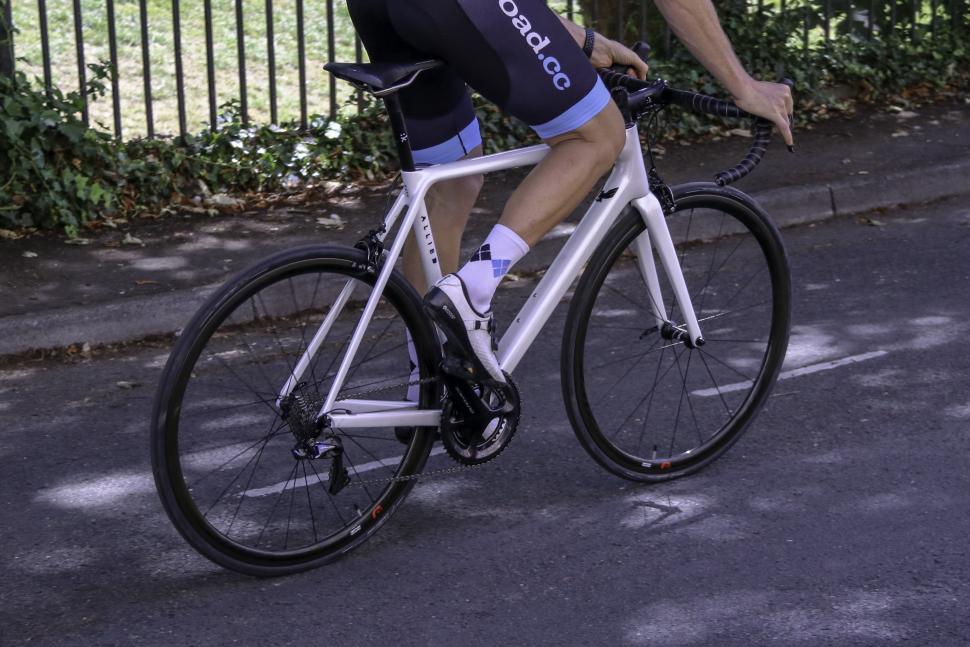


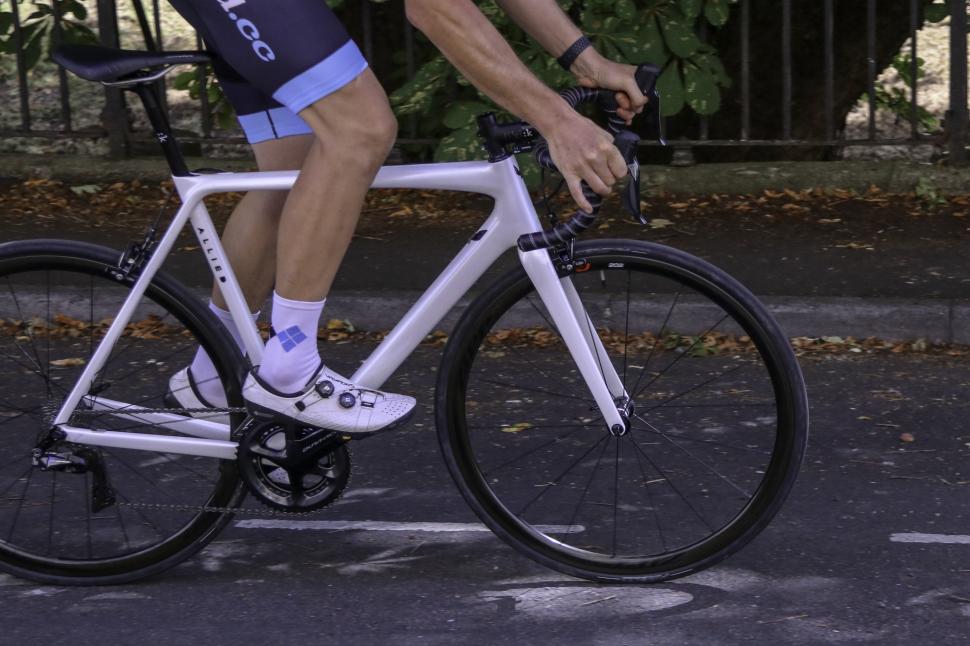
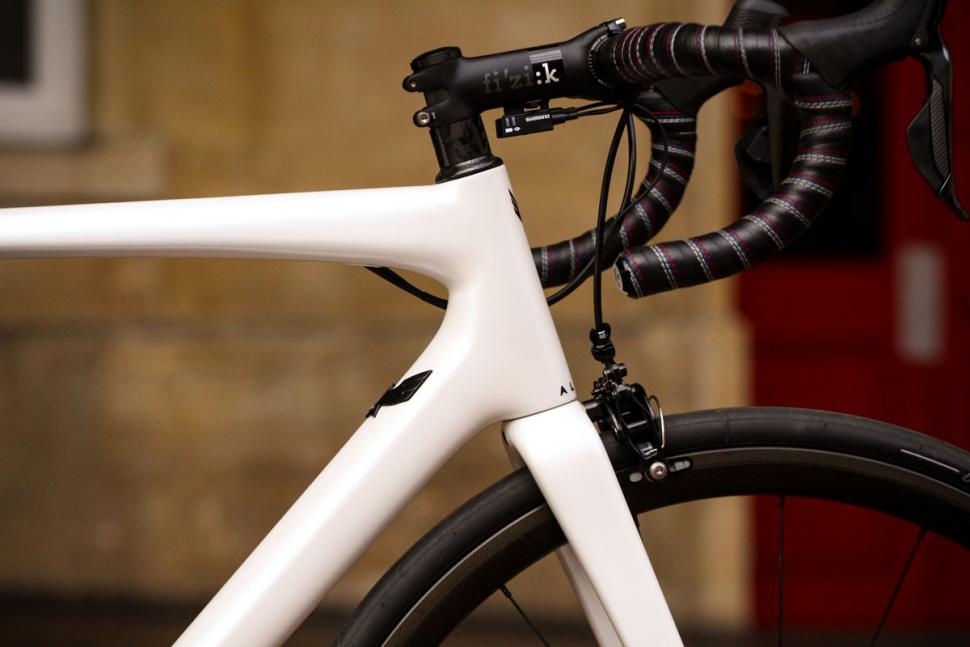
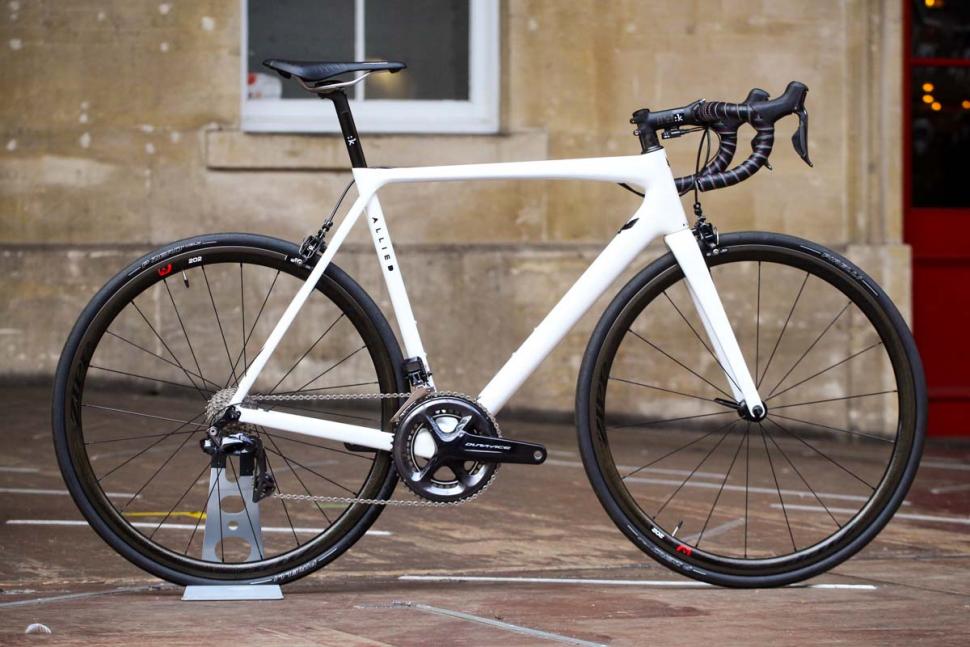
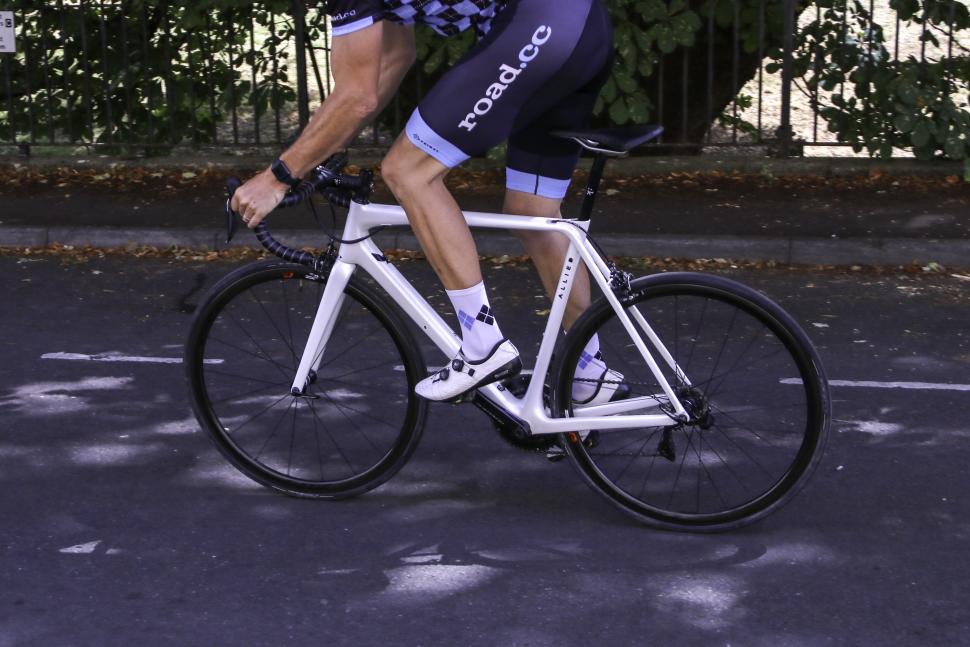
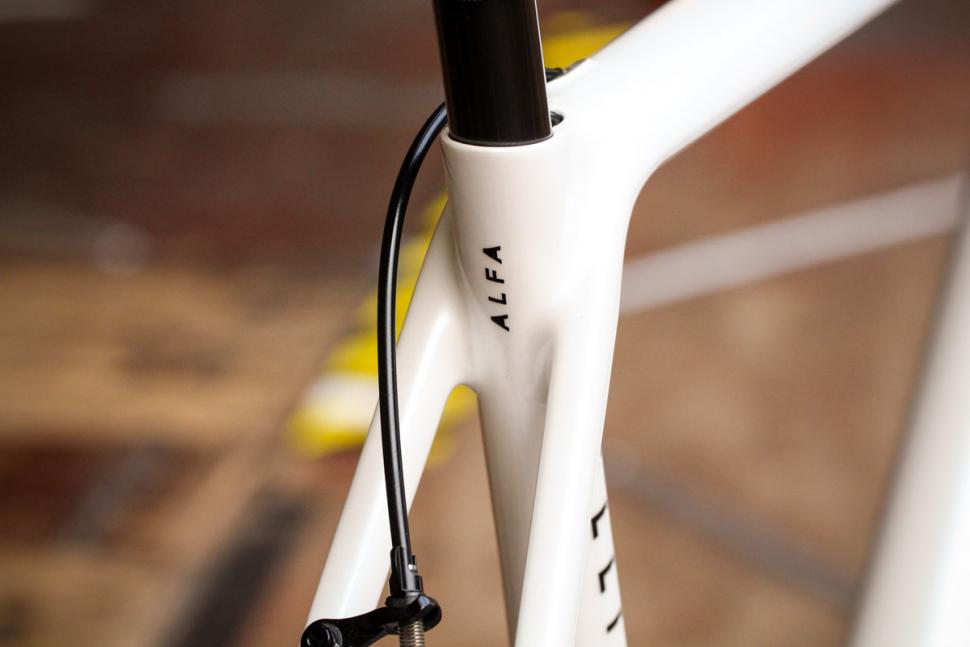


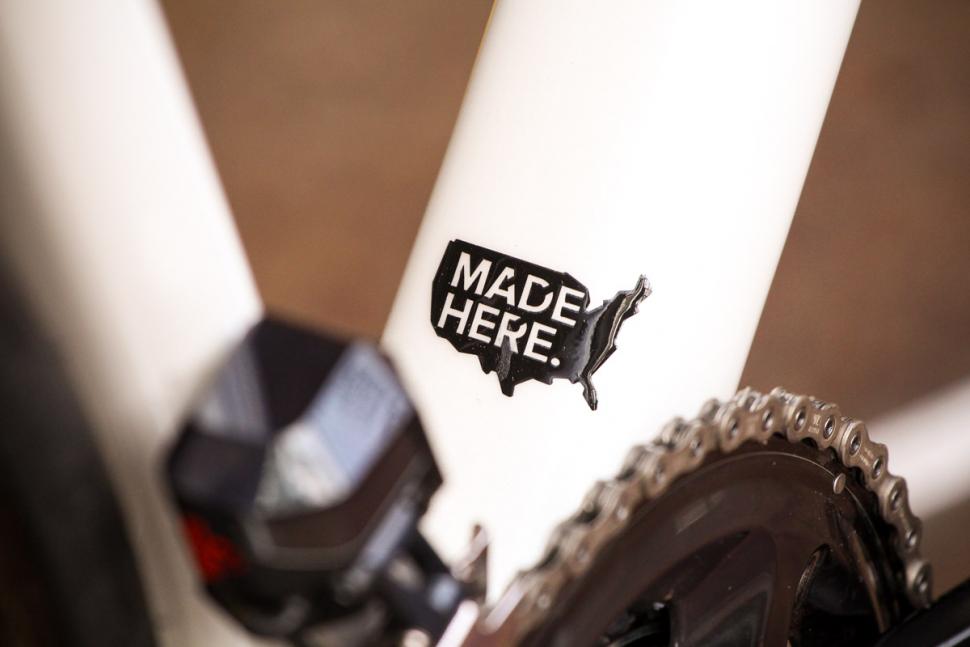
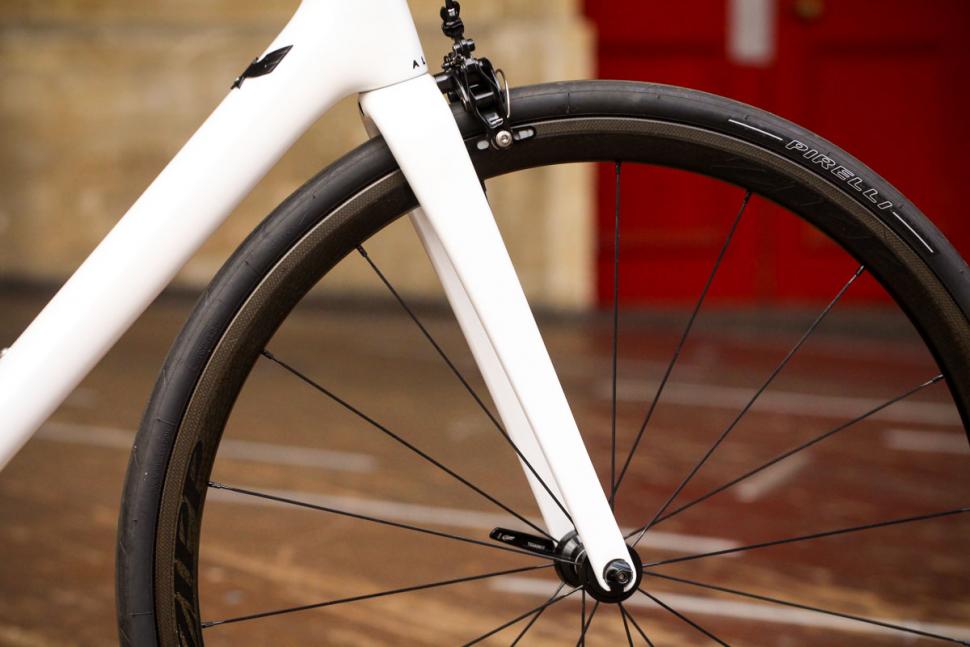
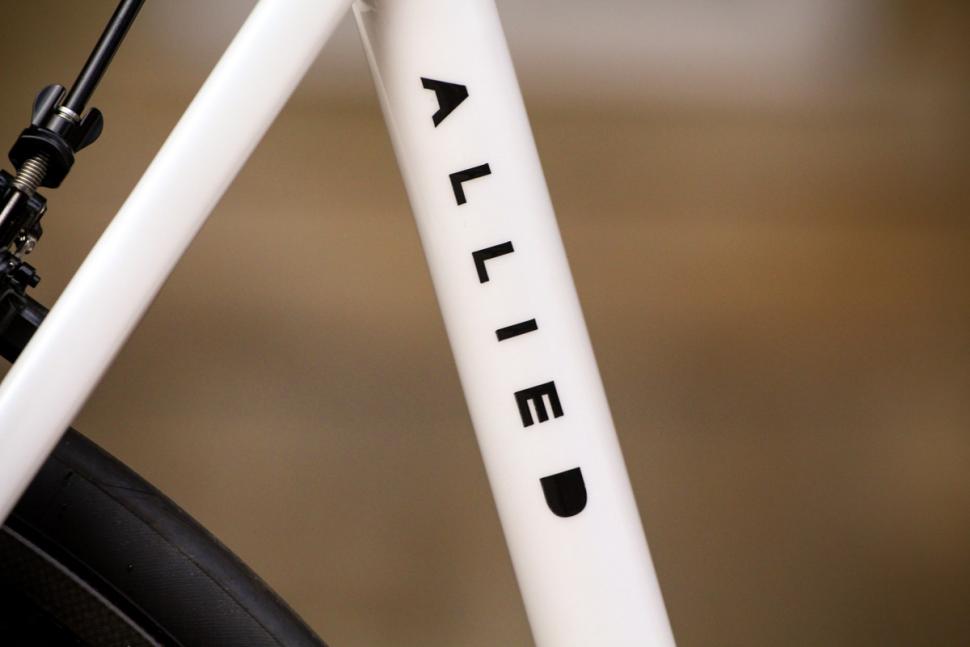
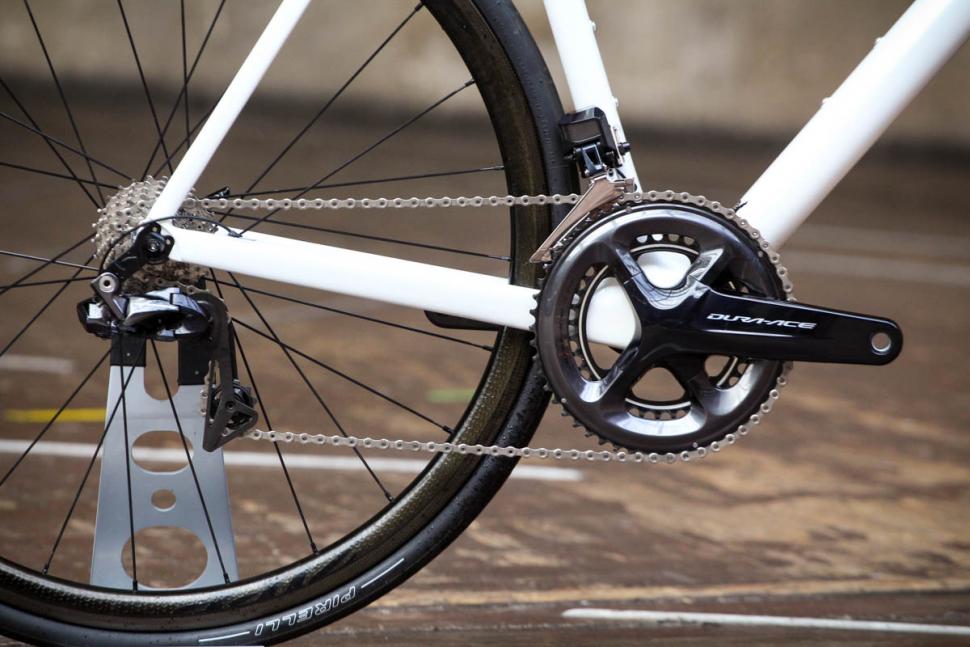
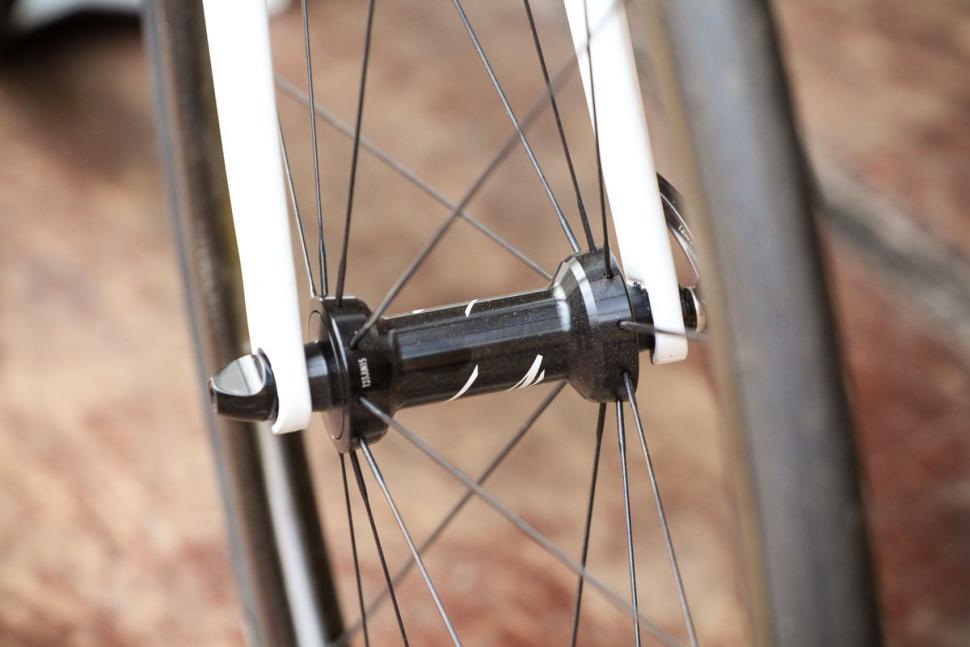
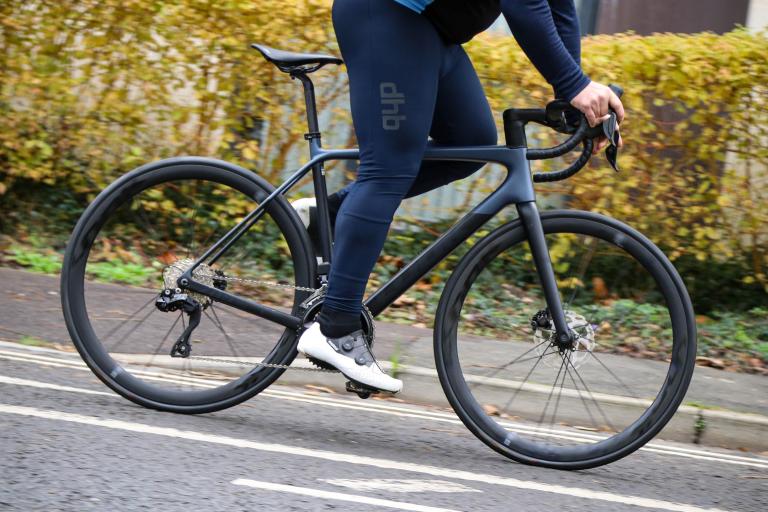
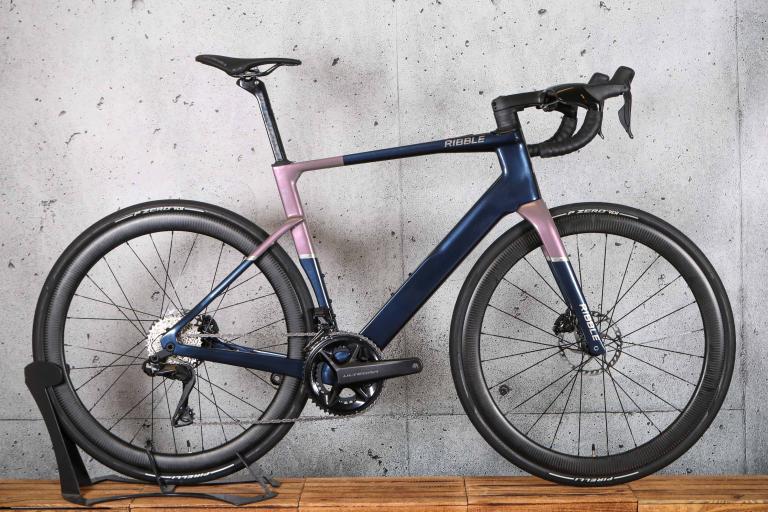
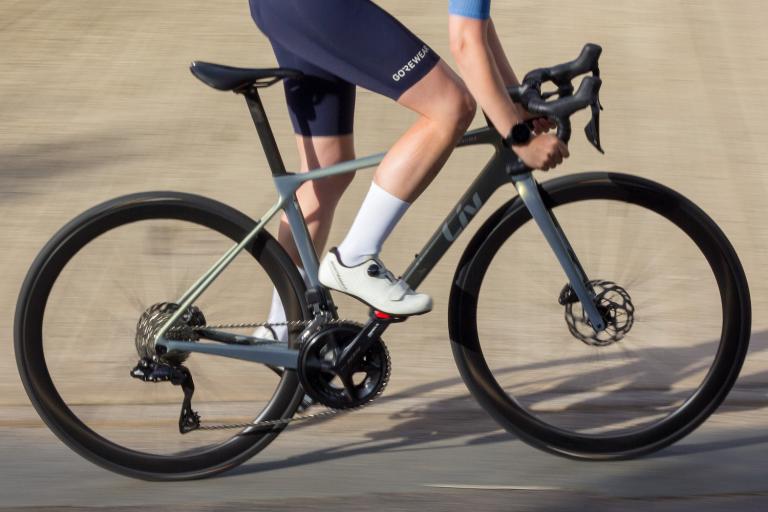
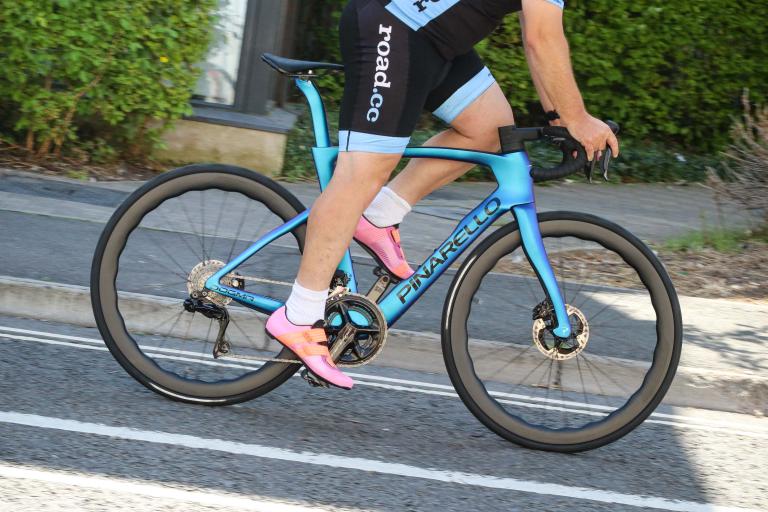
Car crashes outside Poundland in Abingdon town centre...
I'm impressed by my DX1000, the keys look difficult for picking, though I'd like to seethe LPL having a go at one. And it definitely feels the part...
So cyclists will be punished far heavier than killer drivers. Sums up the fkd up UK.
I've done the 312 and other closed roads events like the Etape Caledonia and each time there is bad press like this in advance but on the day the...
It's not that surprising that Mr GrumpyGobshite hasn't seen the 20mph limit "stuck too [sic] in 47 years" as it was only reintroduced in 2004, it...
Spiral wound cables can expand and contract and possibly help with brake modulation, as well as make tighter bends. ...
My TL200 rear light stopped working after 14 months - it seems IP ratings arent what they say on the tin! I have tried different brands and all...
I've no idea what the situation is here, but I've seen plenty of "under construction" cycle lanes where there are only signs/barriers around the...
whereas the whole point is that they didn't hit you this time
AIUI an entering-circulating accident [sic] would be when the vehicle entering the roundabout fails to give way to the vehicle circulating.